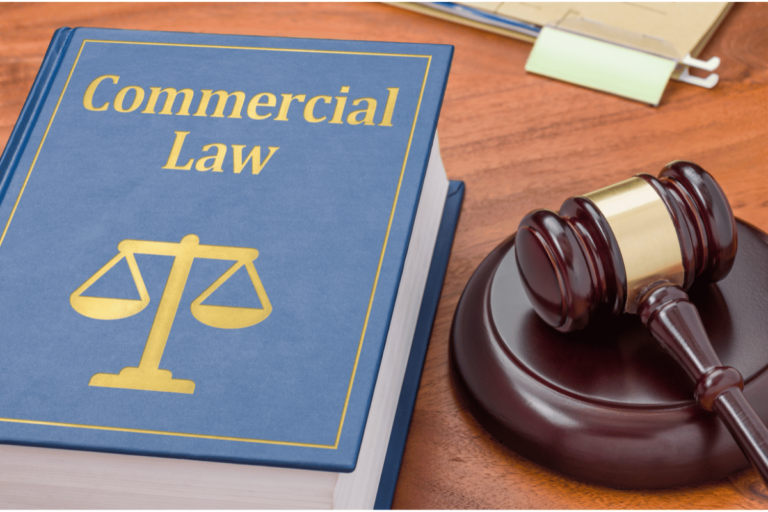Green Business Practices for Small Enterprises
Small businesses can do a lot to help the environment. By using eco-friendly practices, they help create a more sustainable world. They can lessen the effects of climate change and support a greener economy. This shows their significant role in the big picture.
Key Takeaways:
- Small businesses can make a substantial impact by adopting eco-friendly business practices.
- Implementing sustainable business strategies is crucial for addressing climate change.
- Environmentally friendly practices can contribute to a greener economy.
- By going green, small enterprises can promote a more sustainable future.
- Green business practices benefit both the environment and the business itself.
Reasons to Build a Sustainable Business
Building a sustainable business is good for the earth and your pocket. Such businesses can beat their rivals by almost 12 percent each year. They do this by cutting their environmental harm and saving money on resources. This also helps attract customers who care about the planet.
Companies selling green products have a big edge in the market. These businesses earn more than $100 billion a year only from their eco-friendly items. As more people prefer green businesses, this creates a chance for small companies to shine and lead in sustainability.
“Sustainable businesses can outperform competitors by nearly 12 percent annually.”
Small businesses can help build a sustainable future by going green. Using clean energy, making less waste, and being smarter with resources cuts their carbon footprint. This is good for the earth and appeals to customers looking for eco-friendly brands.
Going green isn’t just good for the planet; it’s also a wise money move. By using less energy, being efficient with resources, and handling waste wisely, companies save money. For example, using energy-efficient lighting can lead to big savings over time.
Building a sustainable business is not just a moral obligation; it is a smart business decision. Focusing on sustainability helps businesses stand out, draw in green-minded customers, and bolster their profits. All while playing a part in making the world a greener place.
Benefits of a Small Business Sustainability Plan
A small business sustainability plan brings many good things. This kind of plan focuses on eco-friendly choices. It helps the earth and boosts the business too.
1. Reduce Costs:
By going green, businesses save a lot of money over time. For example, using LED lights and smart thermostats cuts power bills. Plus, using green packaging and recycling reduces waste costs.1
2. Promote Public Health:
Green practices make communities healthier. Small businesses can use earth-safe cleaners and reduce pollution. This makes the air and water cleaner, helping everyone’s health.2
3. Improve Public Relations:
People like companies that are green. Showing a plan for sustainability improves a company’s image. It attracts caring customers and stands out from other businesses.3
4. Attract Eco-Conscious Consumers:
Shoppers who care about the planet look for green businesses. By being eco-friendly and showing it, small companies win these customers over.4
5. Gain a Competitive Advantage:
Being green can help businesses do better than others. It draws in people and companies that support eco-efforts. This can open doors to new business and growth.5
“Sustainability is crucial for all businesses now. A smart sustainability plan sets you up for success. It cuts costs, draws green customers, and helps the planet.”
A small business sustainability plan is good for business and nature. It shows the benefits of going green. It encourages companies to do their part for a better, greener world.
References:
- Wang, Y.-D., & El Kassar, A. N. (2017). Green marketing orientation: Conceptualization, scale development, and validation. Journal of Business Research, 80, 236-246.
- World Health Organization. (2016). Preventing disease through healthy environments: A global assessment of the burden of disease from environmental risks. World Health Organization.
- Boons, F., & Lüdeke-Freund, F. (2013). Business models for sustainable innovation: State-of-the-art and steps towards a research agenda. Journal of Cleaner Production, 45, 9-19.
- Rex, E., & Baumann, H. (2007). Beyond ecolabels: What green marketing can learn from conventional marketing. Journal of Cleaner Production, 15(6), 567-576.
- Porter, M. E., & van der Linde, C. (1995). Toward a new conception of the environment-competitiveness relationship. Journal of Economic Perspectives, 9(4), 97-118.
Today’s Consumers and Corporate Social Responsibility
More people are choosing to buy from businesses that care about the planet. They are picking products that come from sustainable and green companies. Today’s shopper thinks about how their choices affect the earth. They want the companies they buy from to do the same. This includes using renewable energy and eco-friendly packaging.
People are more aware of how what they buy impacts the environment. This is a huge chance for green business owners to shake things up. They can start companies that help the planet while attracting customers who feel the same way.
A report by Accenture shows that most consumers want companies to stand up for what’s right. Many also wish to support companies focused on doing good for the world. These folks are happy to buy from businesses that share their values.
Social media has made it easy for customers to call out companies that don’t do enough for the planet. Bad reviews and boycotts can damage a brand. But, companies that show they care about the environment gain fans who support their efforts.
“Consumer decisions can shape the marketplace, and their preference for eco-friendly businesses sends a clear message to industries: sustainability is not just a trend, but a necessity for long-term success.”
– Sustainability Expert, Jane Roberts
Many buyers today want products that are made in a way that’s good for the planet. This desire opens the door for new businesses to meet this need. There’s a chance for entrepreneurs to find what’s missing in the market and fill it with eco-friendly options.
Business owners who focus on what the buyers want for the planet can do well. They not only help the environment but also see their businesses grow. This is especially true in a market where more people are thinking about the earth.
The Environmental Impact of Consumer Choices
Consumers are starting to see how their shopping affects the environment. They look for products and support brands that help reduce harm and support green practices. From clothes to food, they want choices that are good for the earth.
The fashion industry is changing to be more eco-friendly. People now look for clothing that doesn’t hurt the planet. Brands that use good methods and materials are becoming popular.
Food and drink are also areas where buyers want to do better for the world. They choose products from brands that farm responsibly and treat workers fairly. They also look for items that use less packaging.
This desire for eco-friendliness is growing in many areas – not just clothes and food. People want everything from their soap to their gadgets to be made with the planet in mind.
Eco-Friendly Businesses and the Bottom Line
Consumers caring more about the planet isn’t just good for the environment. It can also help businesses be more successful. Companies that focus on being green often do better financially.
Research from the Harvard Business Review shows this is true. Businesses that commit to being eco-friendly make more money for their investors. Making sustainable choices is not just good for the earth. It’s also a smart business move.
Entrepreneurs who care about the planet can use this to their advantage. They can attract the growing number of buyers who prefer eco-friendly options. By putting sustainability first, they can grow their customer base.
In today’s market, caring for the planet is very important. Businesses that make this part of their core mission can succeed in both helping the environment and meeting consumer demands.
Eco-Friendly Business Ideas for Small Enterprises
Are you a small business owner wanting to do good for the planet? There are lots of eco-friendly business ideas. They are great for small businesses. You’ll be helping the environment by using them. And, you might just make your business more successful too.
- Ink Refill Business: By refilling ink cartridges, you’ll cut down on plastic waste and help customers save money.
- Environmental Publications: Make books or magazines that teach people how to live in eco-friendly ways. These publications can be online or in print.
- Green Finance Services: Offer money help that supports green and ethical companies. This helps people and businesses spend their money in ways that help the planet.
- Eco-Friendly Retail Stores: Open a shop that only sells things good for the environment. You can sell clothes, household items, and more that are eco-friendly.
- Sustainable Construction Materials: Sell materials like recycled wood to those building or renovating. There’s a big need for eco-friendly building materials.
- Organic Catering Services: Start a catering company that uses organic and local food. This is great for events that want to be eco-friendly.
- Eco-Friendly Beauty Salons: Open a beauty salon that uses natural and organic products. You’ll help stop animal testing, avoid toxins, and protect the environment.
- Eco-Friendly Landscaping Services: Offer to design outdoor spaces using local plants and eco-friendly methods. Your customers get beautiful gardens without harming the earth.
- Sustainable Event Planning: Plan events that are good for the planet. You can help by reducing waste, recycling, and saving energy.
- Bicycle Repair and Refurbishing Services: Fix and upgrade bikes to keep them on the road. This supports a clean way to travel and cuts down on pollution.
- Handmade and All-Natural Products: Make and sell things like lotions and decorations from natural materials. This appeals to those who care about the earth.
- Eco-Consulting Service: Help other businesses go green. You’ll offer advice on how to be eco-friendly and efficient.
- Farmers Market Vendor: Sell fresh, local, and organic foods at markets. This supports farming that’s good for the environment and our health.
- Green Housekeeping Services: Clean people’s homes using products that are safe for the planet. This way, homes stay clean without pollution.
- Upcycling Furniture: Turn old furniture into new, cool items. This is good for the planet and offers unique pieces for homes.
- Exploring Green Franchises: See if there are big eco-friendly brands you can join. This lets you be part of a well-known eco-friendly business.
- Opening a Secondhand Store: Start a shop that sells quality used items. This way, things get used again, reducing waste.
These eco-friendly business ideas are great for small businesses. They let you help the planet and make your business stronger. By using these green practices, your business can grow. It also helps make the future more sustainable.
Conducting Waste Audits
Waste audits help businesses find out where they are wasting resources. They look closely at trash production, how it’s managed, and how much is thrown away. By doing this, companies can figure out ways to use resources better. They can then save money and follow waste management rules. Waste audits also let companies help the environment and the economy by managing waste well.
These audits carefully check the waste a business creates. They look at what kind of trash there is, how much, and where it comes from. This helps companies see if there are ways to create less waste.
“By examining waste streams, businesses can identify areas where waste is being generated unnecessarily. This understanding allows them to implement more sustainable waste management practices, reduce waste generation, and streamline their operations.”
A big plus of waste audits is they show companies the impact of their waste. By measuring and categorizing trash, they see the bigger picture. This helps them set goals to make less waste. Waste audits also shed light on how to be more efficient. This can save money and make better use of resources.
Also, waste audits keep companies in line with the law. They help find and fix any bad waste disposal habits. This makes sure businesses follow the rules and focus on eco-friendly waste plans.
Implementing Sustainable Waste Management Systems
Waste audits are the first step to better waste management. They guide companies on how to cut down, reuse, and recycle waste. Companies then create plans that are good for the environment. They might do things like sorting waste ahead of disposal. Or they could find ways to turn waste into energy.
- Implementing waste segregation systems to facilitate recycling and proper disposal.
- Exploring options for waste-to-energy conversion or partnering with specialized waste management companies.
- Developing initiatives to reduce packaging waste or transition to sustainable packaging materials.
- Engaging employees through awareness campaigns and training to promote waste reduction and recycling.
Following these practices doesn’t just make a business cleaner. It also helps protect the planet and its resources. Plus, it supports a way of living that uses resources over and over, making the world a better place.
The Environmental and Financial Benefits of Waste Audits
Waste audits aren’t just good for the earth; they also save companies money. By finding and reducing waste, businesses enjoy several perks:
- Save money on waste disposal costs and potentially generate revenue from recycling or waste-to-energy initiatives.
- Enhance their brand reputation by demonstrating a commitment to sustainable practices and environmental stewardship.
- Improve resource efficiency, optimizing material usage and reducing the need for raw material extraction.
- Minimize environmental pollution and greenhouse gas emissions associated with waste disposal processes.
- Ensure compliance with waste management regulations and avoid potential fines or legal repercussions.
In the end, waste audits are powerful. They give companies the tools to be more eco-friendly. They cut waste and help build a greener future for everyone.
| Environmental Benefits | Financial Benefits |
|---|---|
| Resource conservation: By implementing waste reduction strategies, businesses can conserve valuable resources and minimize environmental impact. | Cost savings: Reduced waste generation and optimized waste management processes lead to cost savings on disposal and procurement. |
| Greenhouse gas reduction: Proper waste management helps reduce emissions of greenhouse gases and mitigate climate change. | Revenue generation: Some waste materials can be recycled or converted into energy sources, providing potential revenue streams. |
| Circular economy promotion: Sustainable waste management supports the transition to a circular economy by promoting resource reuse and recycling. | Regulatory compliance: Waste audits help businesses ensure compliance with waste management regulations and avoid fines. |
Promoting Recycling Among Employees
Creating a culture of workplace recycling is powerful for businesses. It helps reduce waste and engages employees. This approach also supports sustainable practices.
Implementing effective recycling programs can lessen landfill waste. It also saves valuable resources for a greener future.
To successfully promote recycling among employees, steps like these can help:
- Provide clearly labeled recycling bins to make it easy for everyone.
- Raise awareness through regular communication, like newsletters and meetings.
- Encourage engagement with recycling events.
- Recognize and reward employees for their recycling efforts.
“Recycling turns things into other things, which is like magic.” – Anonymous
Promoting recycling at work can reduce the company’s environmental impact. It can also make the business look good as a socially responsible entity. Sustainable efforts attract eco-conscious customers and improve a company’s reputation.
Benefits of workplace recycling:
| Benefits | Description |
|---|---|
| Waste reduction | Businesses help lessen landfill waste by recycling, promoting a circular economy. |
| Resource conservation | Recycling saves valuable resources, like paper, plastic, and metals, for new products. |
| Cost savings | Recycling cuts waste disposal costs and the need for new materials, saving money. |
| Sustainable practices | Workplace recycling raises awareness about sustainability and helps in eco-friendly living. |
Creating a recycling-focused workplace culture benefits both the planet and employees. It connects workers with the company’s mission, increasing their involvement and satisfaction. Employees appreciate companies that support green initiatives.
An efficient recycling program and engaged employees can greatly reduce waste. It promotes conservation and sustainable practices. Businesses and employees working together can make a real difference.
Reducing Packaging
Product packaging is a big problem, filling up landfills and hurting the earth. But, businesses are starting to make changes. They are looking at their packaging and finding better, eco-friendly ways. This is how they show they care about the planet’s future.
There are many eco-options for packaging. Companies can pick materials like recyclable or biodegradable ones. Using these means less trash in landfills, helping the earth.
One good idea is making returns without a box. This means customers should use the same box to send things back. It cuts back on the new packaging they need.
Working with eco-friendly partners also helps. When businesses team up with others who love the earth, they can find new ways to use less packaging.
Less packaging waste is great for the earth and what people want. It shows that a business is serious about being green. This can draw in more customers who care about the environment.
Quotes:
“The shift towards sustainable packaging not only reduces waste but also enhances a business’s brand reputation as environmentally responsible.” – GreenBiz
“Sustainable packaging allows businesses to meet the growing demands of eco-conscious consumers, leading to increased customer loyalty and brand advocacy.” – Packaging Digest
Benefits of Reducing Packaging Waste:
- Minimize environmental impact and landfills
- Enhance brand reputation
- Attract eco-conscious consumers
- Contribute to a circular economy
- Reduce costs associated with packaging materials
To end, reducing packaging waste is a big deal for being sustainable. Companies can make a difference. They should look at their packaging, use eco-options, and work with green partners. This not only helps the earth but also makes a company look good and attracts green buyers.
Switching to LED Lighting
Businesses can make a big impact by using LED lights. These lights use less energy and have a longer life. This choice can help companies reduce their carbon footprint and energy bills.
LED lights are brighter but use much less energy than old bulbs. By swapping old bulbs with LEDs, businesses save a lot of energy. This move helps the planet and saves money too.
- Energy-efficient: LED lights use up to 75% less energy than traditional incandescent bulbs, resulting in reduced energy consumption and lower electricity bills.
- Long lifespan: LED lights have an average lifespan of 25,000 to 50,000 hours, compared to the 1,000-hour lifespan of incandescent bulbs. This means fewer replacements and less waste.
- Lower maintenance costs: Due to their long lifespan, LED lights require less frequent replacements, resulting in cost savings on maintenance and replacement labor.
- Instant illumination: LED lights operate at full brightness immediately after turning on, eliminating the warm-up time required by some other lighting options.
- Environmentally friendly: LED lights do not contain harmful substances like mercury, which is often found in fluorescent bulbs, making them safer to dispose of and better for the environment.
Adding motion sensors and timers can also help save more energy. These tools make sure lights are on only when needed. This further cuts down energy waste.
Moving to LED lights can cut business energy use and carbon emissions. This choice also means spending less on energy in the future. It’s a smart move for both the planet and your pocket.
| Benefits of Switching to LED Lighting |
|---|
| Reduced energy consumption and lower electricity bills |
| Longer lifespan, resulting in fewer replacements and less waste |
| Lower maintenance costs and higher cost savings |
| Instant illumination without warm-up time |
| Environmentally friendly and safe to dispose of |
Implementing Programmable Thermostats
Businesses can reduce their energy use and environmental impact by using programmable thermostats. These devices let businesses control their heating and cooling more efficiently. This leads to lower energy use, less pollution, and reduced costs.
With programmable thermostats, heating and cooling only happen when necessary. This helps avoid wasting energy. Plus, it makes the work area more comfortable for everyone.
These thermostats come with many helpful options, such as:
- Customizable temperature schedules: Businesses can set different temperatures for various times. This means heating and cooling are always just right.
- Vacation mode: Thermostats can change settings when the business is closed or during vacations. This saves even more energy.
- Remote access: Some models let you change settings from a distance using a phone app. This is great for controlling the temperature when off-site.
- Smart integrations: Programmable thermostats can work with other smart devices like lights or motion sensors. Together, they use energy even more wisely.
To make the most of these thermostats, it’s important to look at the HVAC system and get advice from experts. This ensures everything works smoothly and efficiently.
By using programmable thermostats, companies can save energy, money, and make a smaller carbon footprint. These devices are an effective way to manage heating and cooling, supporting a sustainable planet.
| Benefits of Implementing Programmable Thermostats | |
|---|---|
| Energy Savings | Reduce energy consumption by optimizing heating and cooling based on occupancy. |
| Cost Reduction | Lower operating costs through decreased energy usage. |
| Environmental Impact | Lower greenhouse gas emissions for a more sustainable future. |
| Comfortable Working Environment | Create a pleasant temperature setting for employees. |
Using Sustainably Sourced Recycled Paper
Going fully paperless might be hard for some businesses. Still, they can cut down on eco impact by using paper wisely. One smart way is to pick sustainably sourced recycled paper. This choice saves trees, cuts down on waste, and lessens the need for new materials.
Post-consumer recycled content makes paper eco-friendly. This paper reuses old materials. It saves trees and reduces the harm of making paper.
“Using sustainably sourced recycled paper is not only an eco-friendly choice but also an opportunity to showcase a business’s commitment to responsible paper usage.”
Always look for certifications when buying paper. The Forest Stewardship Council (FSC) or the Programme for the Endorsement of Forest Certification (PEFC) labels are good signs. They show the paper is from well-managed forests or recycled sources.
To use paper better, encourage double-sided printing. This saves paper, money, and cuts down waste. Also, remind everyone to print only what’s needed. And make sure there are recycling bins around for paper waste.
Textile Industry Waste Generation Comparison
Source: Own compilation based on data from industry reports. Numbers are for illustration purposes only.
| Waste Type | Annual Waste Generation (in tons) |
|---|---|
| Synthetic Clothing Production | 9,600,000 |
| Recycled Fiber Production | 2,200,000 |
| Landfilled Clothing Waste | 13,100,000 |
| Donated Clothing | 2,600,000 |
These facts show how much the textile industry’s waste is a problem. But, using sustainable paper can help cut this waste. It also protects our forests and uses old materials better.
Conclusion
Small businesses play a big part in building a sustainable tomorrow. They can do this by using eco-friendly ways, which help the planet and make them stand out. This way, they appeal to people who care about the earth.
Activities like checking waste, recycling, using energy-saving lights, and buying from ethical sources really help. They not only benefit the company but also the environment around us. This helps create a world where we use less, save more, and pollute less.
It’s up to small businesses to take the lead in being green. When they choose to be kind to the earth, they’re doing more than just their job. They’re helping everybody live in a better, greener place. And they’re showing others that it’s the right way to go.
FAQ
Q: Why is building a sustainable business important for small enterprises?
A: Creating a sustainable business matters for small companies. It supports the economy, society, and the planet. Plus, it can make a lot of money from green products or services.
Q: What are the benefits of implementing a small business sustainability plan?
A: Having a sustainability plan saves money and makes people healthier. It also boosts your company’s image, attracts green buyers, and helps beat the competition.
Q: Why is corporate social responsibility important for today’s consumers?
A: Consumers want companies to be socially responsible. They look for green products and expect businesses to lead in environmental efforts.
Q: What are some eco-friendly business ideas suitable for small enterprises?
A: Eco ideas for small businesses include ink refill shops and green finance services. Also, they can offer sustainable construction materials. And don’t forget about eco-friendly stores and publishing green magazines.
Q: How can waste audits benefit small businesses?
A: Waste checks show where your business can cut back. They help fight waste and save money on getting rid of trash. Plus, they keep you in line with the law.
Q: How can businesses promote recycling among employees?
A: To encourage recycling, give workers clear bins and explain why it matters. Getting employees involved can cut waste and improve how the company is seen.
Q: How can businesses reduce packaging waste?
A: Lowering packaging waste starts with smarter packing choices. This might mean choosing green materials or working with eco-friendly-minded partners. Box-free returns are another good option.
Q: How can businesses reduce energy consumption through lighting?
A: Shifting to LED lights saves energy. They last longer too. Using motion sensors and timers also helps cut down on power use.
Q: How can businesses optimize heating and cooling to reduce energy consumption?
A: By using smart thermostats, companies cut power while keeping everyone comfortable. This means fewer emissions and lower bills.
Q: How can businesses promote responsible paper usage?
A: Not everyone can go without paper, but choosing recycled helps. Look for certifications and print on both sides to show you care about the planet.
Q: Why are green business practices important for small enterprises?
A: Green strategies are key for small businesses to help the planet. They show you’re serious about the environment. It attracts customers and builds a greener future.







